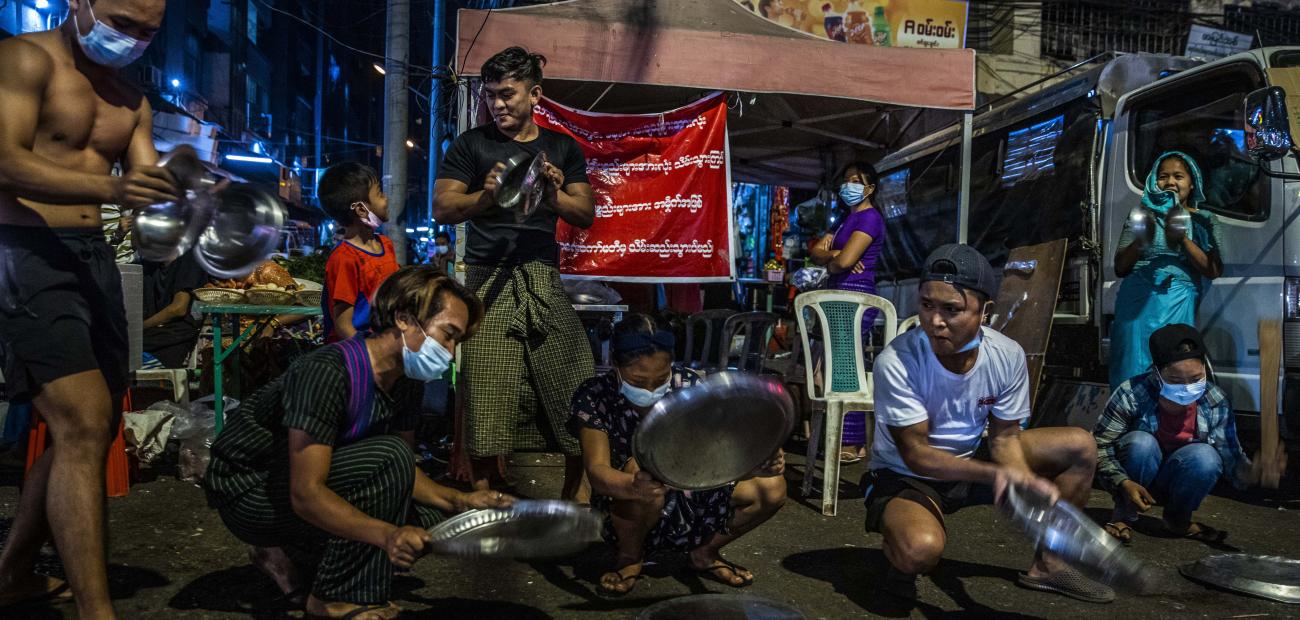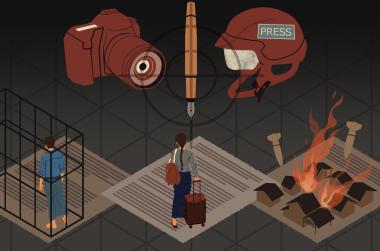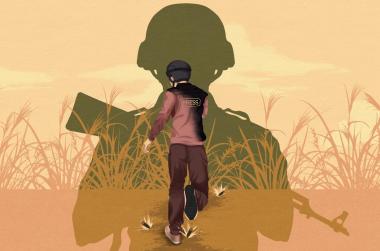The writer is a former journalist from Myanmar who is now abroad. She is receiving support from The Kite Tales to write these diaries.
January 31, 2021 - 9:30 pm, somewhere on Inya Road, Yangon
I’ve become accustomed to working from 9.00 am till 9.00 pm. I have often come home late from work. But however busy I have been during the day, the thought of two small human beings who are waiting for me is a source of strength on my way home. While tucking them in for the night, I would tell them. “Goodnight babies. Please wake up early tomorrow and eat the fried eggs I make for you, ok?”
But tonight I felt like I was rushing, as if I was about to lose something precious.
The topic of discussion this evening with colleagues was whether the military would stage a coup to seize power from the elected government. A few days ago, the news reports said the military had warned not to assume they would not stage a coup, so everyone at work thought the army was plotting a takeover.
But I thought they would have to back down since army chief Min Aung Hlaing said he would act within the 2008 constitution.
Politics should be resolved politically, I said. If they were to stage a military coup, it would be a bad omen for the country so if he is planning that, then he’s crazy.
There was no way to resolve the debate, so I left for home.
I hoped to see the faces of my two children, but I arrived a little later than usual and both had already gone to bed.

February 1 - 5:30 a.m.
The constant knocking on the door woke me up. My eyes were still closed but my lips said: “It’s not locked. Come in. What’s up?”.
Before I’d finished speaking, my aunt, who is in her 60s, burst in.
I sat up in bed immediately.
“What is it?” I said.
"Daughter, they have seized power," she said, her voice soft and cracking with emotion.
“What? That’s nonsense, Auntie. Where on earth did you read such news so early in the morning?” I replied, still disbelieving.
She scolded me. “If you don’t believe what I’m saying, switch on your phone.”
When I picked up the smartphone, which was lying next to the pillow, my whole body went cold. There was a message from a former colleague at a news agency.
I couldn’t believe it. I dared not believe it. So I started sending messages to more trusted friends, asking them if they had been able to confirm it. As a former journalist, it was second nature to verify when a piece of news came in.
Everyone I contacted was active and online and answered my queries immediately. So I had to accept that it had happened.
I couldn’t go back to sleep. I walked back and forth. I don’t remember how many times.
What I remember was that I made coffee.
“They have conspired against the country,” I said repeatedly.
Tears were in my eyes. My chest was constricted. I cannot count the times I went to see the children, who were still sleeping soundly. I remember blurting out whatever was in my mind and ignoring my aunt’s questions.
“They’ve gone mad,” I kept saying.
It was a morning of insanity.
That day, on the way to the office, I felt like I was watching a loved one dying, suffering and screaming and crying in total silence.
When I got to work the faces of my colleagues carried the same worried expression as mine. I could see anger in some of them.
February 2
People had been putting up blacked out profiles on social media to express their opposition to the coup and I checked these pages constantly for news.
If Yangon yesterday was struggling to stay alive, it felt like today energy was returning to the city.
Doctors and students established the civil disobedience movement. I remember how people in Yangon showed their outrage to the dictatorship by banging on anything that made noise, all together, without any prior coordination with each other. We honked at each other from our cars to express our feelings.
We were as one.

February 6
For the first time in my 35 years, I took to the streets to express my dissatisfaction with injustice. Internet access had been cut off to prevent people from sharing their views on social media, but the public, especially the youth, were taking to the streets.
A new generation - who go online as soon as they wake up - reacted angrily to an attempt to restrict news and information.
Within weeks, without really realising it, I had become heavily involved in the protests and activities against the military junta. What sealed my determination was the killing on February 19 of Ma Mya Thwet Thwet Khine in Naypyitaw.
That event filled me with such grief that I even said out loud that I was ready if each and every one of us were to be shot too.
I was shocked such a thought had entered my head when I would be leaving behind a young son and daughter.
February 1, 2022
On the one-year anniversary of the coup, I was away from my family. I had to escape and leave my two children behind.
It has been a really difficult year.
During the third wave of COVID-19, when I heard everyone at home was positive, including my aunts and my sister, I thought of returning home. But my colleagues persuaded me to stay away, saying nothing good would come of it. I would either get COVID-19 or arrested.
But I was distraught. I couldn’t stop blaming myself for not being there on the days when they had no appetite and their oxygen levels were low. During those nights, I would wake up in the middle of the night, thinking I heard the phone ringing.
Fortunately, they all survived, despite the lack of doctors or medical treatment.
And I am still alive too. I am training my mind to become stronger, so that I can do more for my family and for the future of the country.
But this first entry in my 2022 diary is too ugly. In truth, I really do not want to mark the anniversary of the coup.
So if you ask me what kind of a future I want, I would like to say that I do not want to be writing another coup anniversary diary this time next year.
May the dictatorship perish.
Illustration courtesy of Art for Freedom (Myanmar).





